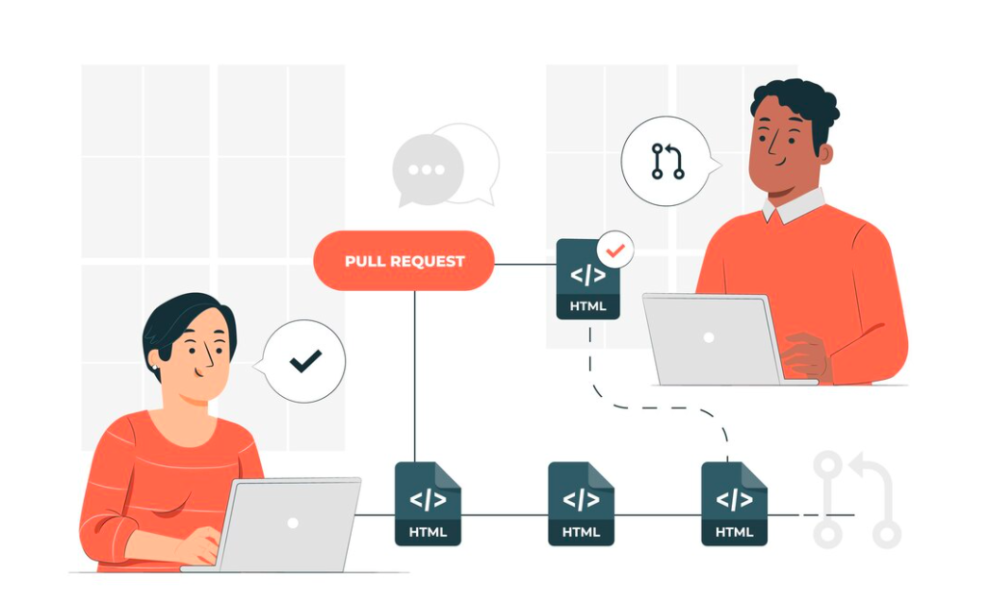In the ever-evolving world of software development, collaboration and accessibility are key components to success. Whether you’re a seasoned developer or a coding enthusiast, finding the right platform for hosting and sharing your code is essential. With an abundance of options available, we’ve curated a list of the top 10 websites that cater to various needs, ensuring your code finds the perfect home.
GitHub:

GitHub stands as the undisputed leader in code hosting, offering a comprehensive set of tools for version control, collaboration, and project management. Ideal for both individual developers and large teams, it seamlessly integrates features like issue tracking, pull requests, and actions, making it a powerhouse for open-source projects and private repositories alike.
- GitHub is the gold standard for version control and collaborative coding.
- Offers an extensive set of features like issue tracking, pull requests, and actions.
- Ideal for open-source projects and individual developers alike.
GitLab:

GitLab goes beyond simple code hosting, providing a complete DevOps lifecycle platform. With support for Git and Mercurial, it encompasses CI/CD pipelines, a container registry, and project management tools. Suitable for projects of any scale, GitLab offers a unified solution for development teams.
- GitLab provides an integrated platform for the entire DevOps lifecycle.
- Not just a code repository, it also includes CI/CD pipelines, container registry, and project management tools.
- Suited for both small projects and large enterprises.
Bitbucket:
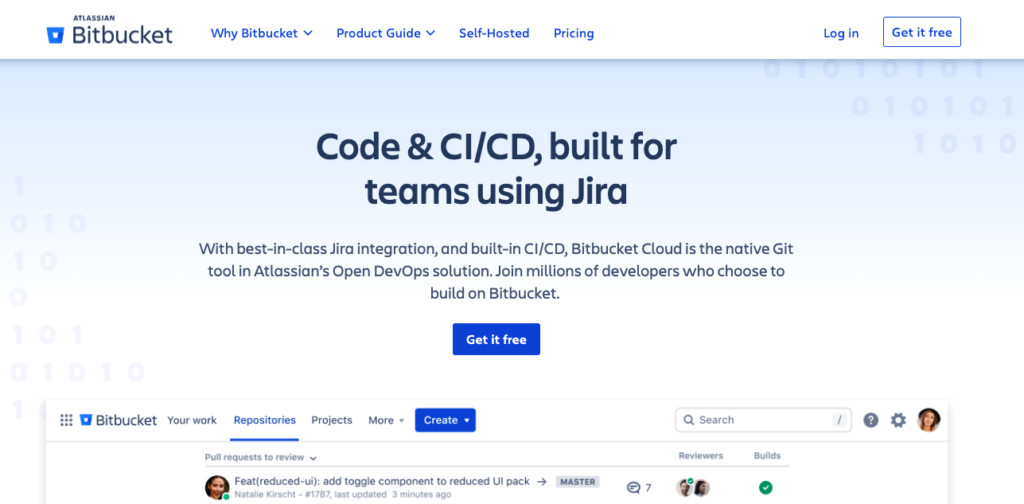
Atlassian’s Bitbucket is a versatile platform supporting Git and Mercurial repositories. Integrating seamlessly with Jira and Confluence, it’s an excellent choice for teams already using Atlassian tools. Bitbucket’s free private repositories make it an attractive option for small teams and individual developers.
- Atlassian’s Bitbucket supports both Git and Mercurial repositories.
- Integrates seamlessly with other Atlassian tools like Jira and Confluence.
- Offers free private repositories for small teams.
SourceForge:
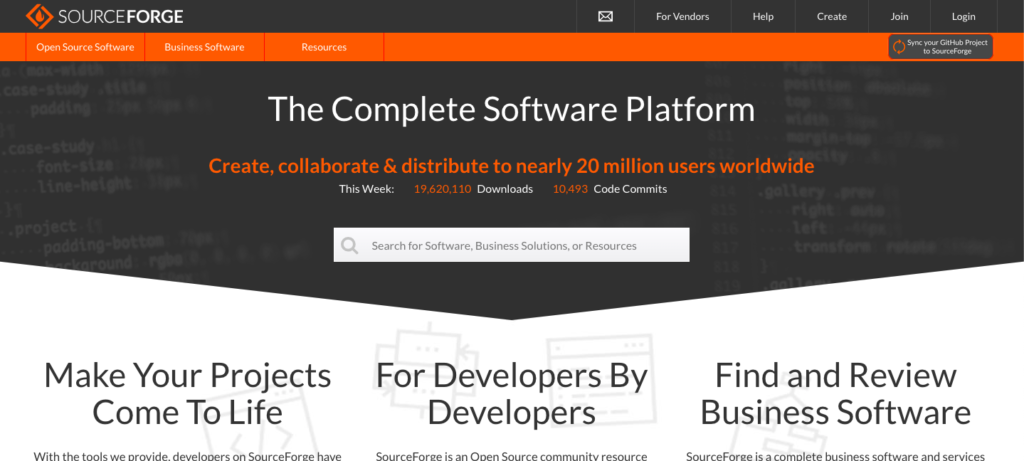
SourceForge, a veteran in the code hosting realm, specializes in hosting open-source software. With features like code versioning, bug tracking, and collaboration tools, it’s a community-driven platform perfect for projects fostering a sense of shared development.
- SourceForge has been around for years and is a go-to platform for hosting open-source software.
- Features include code versioning, bug tracking, and collaboration tools.
- Excellent for projects with a focus on community development.
GitKraken:
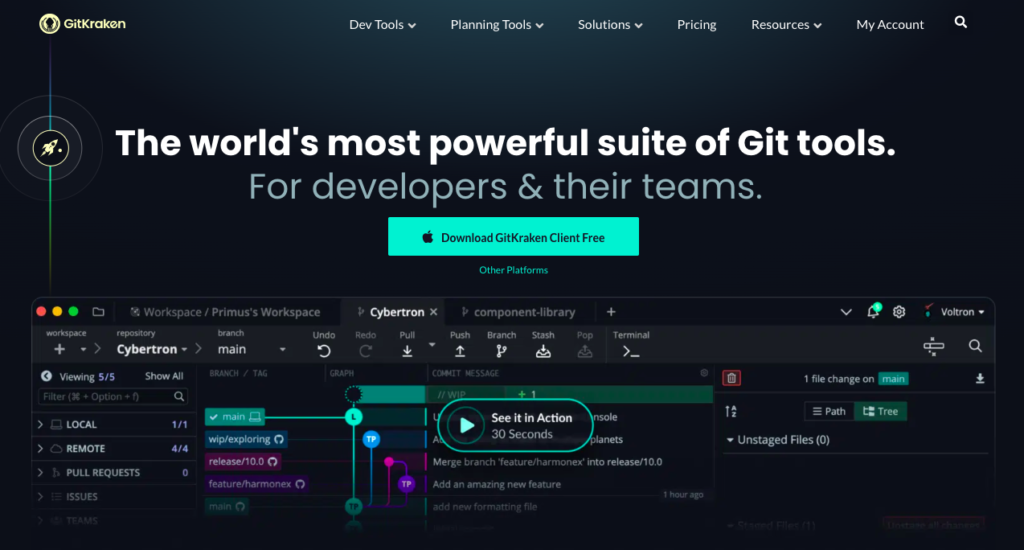
GitKraken stands out with its visually appealing interface, making Git repository management an engaging experience. Supporting Git and offering features like Gitflow and Git-hooks, it seamlessly integrates with popular platforms like GitHub, GitLab, and Bitbucket.
- GitKraken’s platform is known for its visually appealing interface.
- Supports Git repositories and offers features like Gitflow and Git-hooks.
- Integrates with popular platforms like GitHub, GitLab, and Bitbucket.
CodePen:
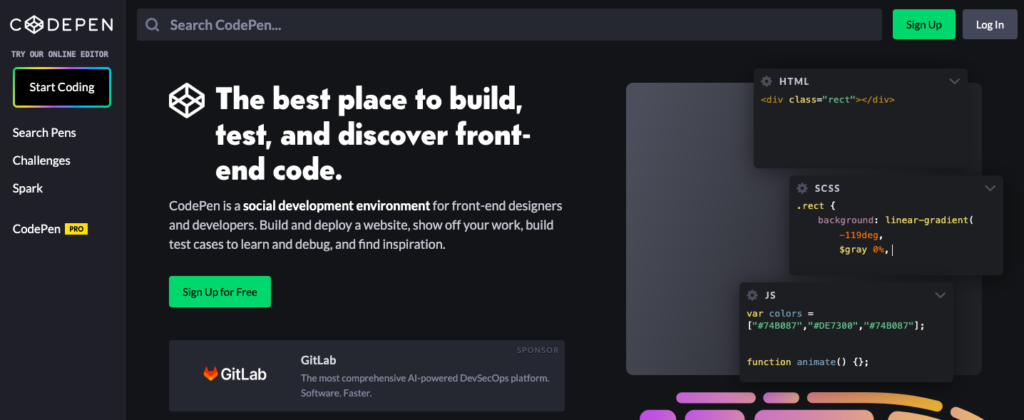
CodePen caters specifically to front-end developers and designers, allowing them to showcase HTML, CSS, and JavaScript code snippets in a live environment. A hub for creative coding experiments, it fosters collaboration and provides an interactive space for coding enthusiasts to share and discover innovative projects.
- CodePen is the go-to platform for front-end developers and designers.
- Allows you to showcase HTML, CSS, and JavaScript code snippets in a live environment.
- Perfect for sharing and discovering creative coding experiments.
AWS CodeCommit:
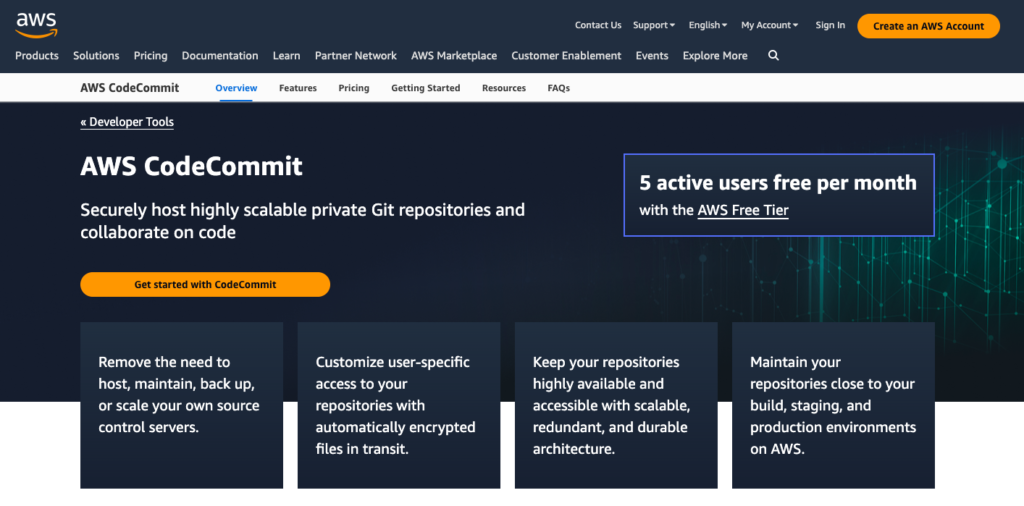
As part of Amazon Web Services, AWS CodeCommit is a fully-managed source control service. Integrating seamlessly with other AWS services, it’s a secure and scalable solution ideal for projects hosted on the AWS infrastructure.
- Part of Amazon Web Services (AWS), CodeCommit is a fully-managed source control service.
- Integrates seamlessly with other AWS services.
- Ideal for projects hosted on the AWS infrastructure.
Microsoft Azure Repos:
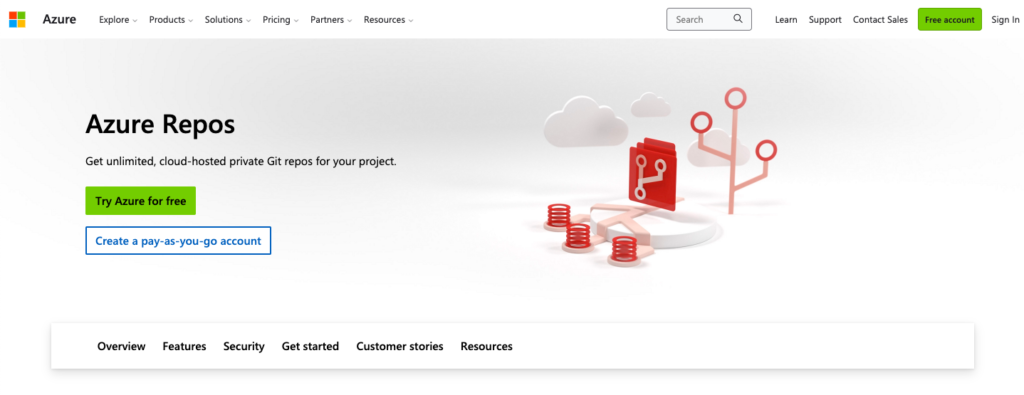
Microsoft Azure Repos, integrated into the Azure DevOps suite, supports both Git and Team Foundation Version Control (TFVC). Offering robust collaboration tools and integration with Azure Pipelines for CI/CD, it’s an excellent choice for projects within the Microsoft development ecosystem.
- Integrated within the Azure DevOps suite, Azure Repos provides Git and Team Foundation Version Control (TFVC).
- Offers robust collaboration tools and integration with Azure Pipelines for CI/CD.
- Great for projects utilizing Microsoft’s development ecosystem.
Gitea:

Gitea, an open-source and self-hosted Git service, is known for its simplicity and lightweight nature. Ideal for those who prefer hosting their repositories on their own infrastructure, Gitea supports essential features like pull requests, issues, and continuous integration.
- Gitea is an open-source, self-hosted Git service that is lightweight and easy to use.
- Ideal for those who prefer to host their repositories on their own infrastructure.
- Supports pull requests, issues, and continuous integration.
Beanstalk:

Beanstalk simplifies version control and deployment processes, offering Git and SVN repositories. With features like code review and deployment automation, it’s a user-friendly platform suitable for teams seeking an easy-to-use solution for version control and collaboration.
- Beanstalk is a version control platform that simplifies the deployment process.
- Offers Git and SVN repositories with features like code review and deployment automation.
- Well-suited for teams looking for an easy-to-use platform for version control and collaboration.
Choosing the right platform for hosting and sharing your code is a crucial decision that can impact the success of your projects. The platforms mentioned above cater to various needs, whether you’re working on open-source projects, collaborating with a team, or showcasing your coding prowess. Explore these platforms, experiment with their features, and find the one that aligns perfectly with your coding requirements. Happy coding!


